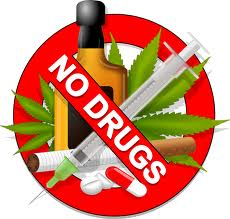
Death by Drugs and Other Killers
Another celebrity bit the dust recently. He joins a long line of famous, as well as ordinary people who have died from a drug overdose; and we mourn. He was a talented actor who shone brightly in the world of glamour and glitter; it’s a shame, and we mourn him along with all the others who have met the same fate. Their loss leaves us feeling empty; it seems so senseless. We are obliged to ask whether illegal drugs have any redeeming value.
Would we be poorer without the drugs? Would our artistic and creative endeavors be forever impaired without these addictive stimulants and depressants? Would our athletic and competitive skills be significantly diminished without illegal drugs? Would we be less happy, less sociable, less humane, less thoughtful, less giving and caring—even less human without artificial means? A better question might be, how much worse off are we because of the ill effects of illegal drugs, and legal drugs that are abused? The answer is obvious; we pay a tremendous price in almost every way imaginable because of drug abuse. The societal and individual costs are enormous. The costs in health services alone are staggering. The cost to family unity is heartbreaking. The cost to society when a parent(s) goes to prison, loses a job, or is incapable of caring for the family, or wastes money on drugs instead of food, shelter, and other basic necessities is horrendous.
We pay billions for border security—in large part, because of the illegal drugs that continue to be smuggled across these borders, along with criminals entering the country who are involved in the drug trade. The illegal drugs continue to stream across the border into America because there is a market for them in this country. The very profitable—insanely profitable—market exists because too many people have decided that they cannot live without illegal drugs.
The need for illegal drugs is created, in large part, because of a subculture that glamorizes drug use and entices the weak minded to “just try it; you’ll feel good!” And users may feel good . . . until the time comes when they don’t; they don’t because they have become addicted and have to have their “fix.” Then, it’s all down-hill from there. Another casualty . . . another negative mark up on the scoreboard, and another set of friends and family mourning for that talented and wonderful person who was all too good and too young to leave this earth so soon. Another casualty . . . another individual who had such a unique spirit and had so much more to give; all of these platitudes we use to salve our loss and exonerate ourselves of any blame. And we ask ourselves, “What more could I have done?” We pray for their souls and feel the loss and the guilt. What more could we have done?
Ironically, a young man, a superstar of the entertainment industry, is currently being charged with using illegal drugs—among other charges. He’s a young man who is idolized by millions of young girls—many of whom will wish that his troubles are not too serious. If lucky, he will be guided to denounce his bad decisions and will continue on a path to success. The chances of that happening are maybe 50 - 50; he may learn from his mistakes or he may be the next casualty in this very deadly dance with addiction.
Winning the war on drugs has about as much chance of succeeding as winning the “war on poverty” or the “war to make our borders secure,” or the “war on random violence.” Failure is practically guaranteed for two reasons: it requires a couple of things in short supply in our society today—self-control and moral authority. Also, we focus our efforts in the wrong place; we’re not focusing on the root of the problem. In each of these “wars” . . . it is human behavior that needs our attention, not the so-called tools of destruction—tools such as drugs, guns, or porous borders.
Our appetites are devouring us; too many of us want more and more and are willing to work less and less for it; however, work is a tonic that cures many ills. The saying that “idle minds are the devil’s playground” has never been truer.
Obviously this is not a hopeful message . . . nor is it intended to be; none-the-less, it is necessary that we feel the depth of despair that exists within this cesspool in which drug addicts live and a drug culture is accepted—or even embraced or glamorized. As a society, let’s rid ourselves of this cumulative parasite that sucks the life out of too many people.